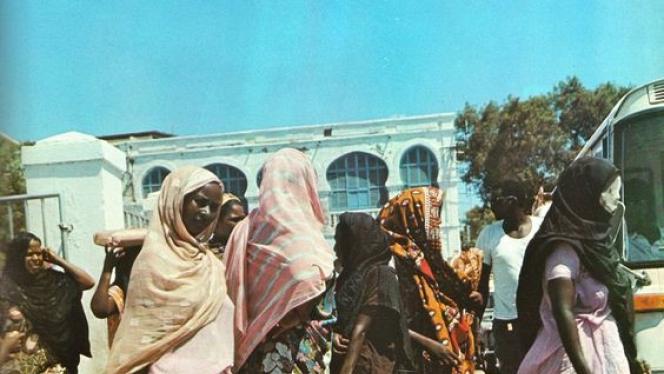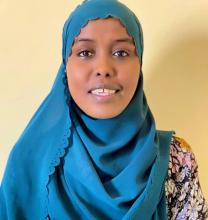Thursday 21 November 2024
Restoring the essence of Somali values

The breakdown of the Somali state and its impact on society has led to an erosion of our core values as Somalis. We need to explore our culture and religion to retrieve and rebuild trust in the country.
The values of Somali society are deeply rooted in what its people hold dear, protect, and cherish. Just as diamonds and gold are safeguarded, societal values are defended with equal fervour. These values distinguish one civilisation from another, even though some universal principles are shared across humanity. It is these unique values that make a society special and intriguing.
Social values, as some scholars define them, are principles that promote the holistic well-being of both current and future generations. They emphasise the importance of supporting both individual welfare and planetary sustainability.
Wars are particularly destructive because they destroy these cherished values. The twenty-first century has been especially harsh due to the prevalence of wars, mainly on the African continent. For instance, in 1945, when America bombed Japan, they succeeded in destroying the Japanese military but failed to eradicate Japanese values. This resilience allowed Japan to recover swiftly and become an economic powerhouse, which though modern, is widely perceived as having maintained something authentic in its spirit.
Somali society has faced decades of conflict, with the intensity escalating in the 1980s. While many academics and writers mark the start of the Somali civil war in 1988, the reality is that Somali society has been experiencing conflict since 1977. The Ethio-Somali war resulted in significant losses and disappointment for the Somali army. Returning home without victory intensified the disappointment felt by both civilians and soldiers. The state appeared to have failed to deliver on its own raison d’etre – decolonising and unifying the Somali territories. Questions abounded: Why were they defeated? What was the war’s primary objective? Was it merely to capture Somali-inhabited land in Ethiopia, and if so, why didn’t they stop there?
The lack of clarity caused many Somali soldiers to remain in Ethiopia and start building militarised groups against the Somali government of that time. The war had another negative externality. People living in the Ogaden region feared Ethiopia retribution as the Somali army retreated, and poured into the borders of the republic. Some counts put the number of refugees crossing the border at 400,000, many of whom settled in the north. A New York Times story on the development was headlined: Ogaden War Producing Little but Refugees. This led to tensions between locals and refugees and was one of the main reasons for the formation of the Somali National Movement in 1982. The Somali community faced wars, fear of defeat, the burden of refugees, the formation of local militia groups, and clan conflicts—all of which weakened the values of Somali individuals and communities.
Aside from wars, the clash of values within the Somali community has been a long-standing issue. Upon gaining independence from British and Italian colonial rule, Somalis experienced an initial conflict between the values of the predominantly nomadic community in the north (now Somaliland) and the farming communities in the south (now Somalia). During this period, intellectuals, particularly Somali poets, began to develop new values, such as national unity among the Somali people. Traditionally, Somali society has not favoured unity due to strong clan loyalty, with clans being smaller community units. Clans sharing borders tended to have similar values and customs, while those that didn’t often did not.
Efforts to develop new values, like national unity, faced challenges, especially after 1982. Even the two Somali states that united found it difficult to work together, as one side, the north, began ceding cherished values such as dignity and independence—key aspects treasured by the northern Somali nomads. The erosion of these values compelled them to fight to regain what was lost. As poet Mohamed Haashi Dhamac “Gaariye” expresses in his poem Dabo-taxan:
Let me speak to the unaware.
What we witness today is the outcome
Of the lessons, the community has been absorbing.
Worse than the destruction of homes
Is the loss of faith,
The abandonment of Islamic values,
The erosion of consciousness.
I live in a country
Where humanity is being severed
What Gaariye meant is that, after the wars, people began to abandon their values due to the numerous problems and challenges they faced. The loss experienced by the Somali community was worse than the destruction of buildings; it was the loss of values, a topic that is often overlooked. In the current Somali community, adherence to religious values, which form the foundation of their culture, is not as strong as it once was. When Gaariye mentioned that people are not following their religion correctly, he did not mean that they are not practising Muslims, but rather that the intertwining of Islamic values with fading Somali cultural values. The generous spirit and charitableness within the Somali community had diminished. While it is true that the Somali community has historically not been pro-unity, they were culturally pro-coexistence. Conflicts did occur, but this did not stop a fundamental acceptance of each other’s existence. This coexistence is another crucial value that has been lost. Losing values means losing the essence of who a person or a community is. Gaariye also said:
In my country the truth is blind.
And lies guide the truth.
If it's shameful in the world,
the corruption and miss treatment,
that is our character.
Corruption is a significant challenge faced by many African nations. This does not imply that corruption is unique to Africa; rather, the visibility of corruption is heightened in African nations due to their relatively limited resources. Somalia, in particular, faces acute challenges related to corruption for several reasons. Historically, the Somali community has had minimal experience with formal governance structures, having transitioned relatively recently from a predominantly nomadic society to a more urbane one.
The imposition of British colonial rule in 1884 marked the first significant interaction Somalis had with an external governance system. However, this interaction was characterised by resistance rather than adaptation. The Somali community’s primary response was to resist British control rather than to engage with and learn from British administrative practices. Consequently, traditional Somali governance structures, including their indigenous court systems, remained largely intact and unaltered by British influence.
In 1960, when Somalis gained independence, the nation faced the monumental task of building a modern state without the benefit of a gradual adaptation to or understanding of contemporary governance practices. The rush to unify with other Somali-inhabited territories, without a comprehensive plan or clear vision for the future, compounded this challenge. Furthermore, the coexistence of multiple governance systems—nomadic, agricultural, British, and Italian—within the country, particularly in Mogadishu, led to confusion and conflict.
The attempt to reconcile these disparate systems and establish a unified governance structure required extensive research, commitment, and a deep understanding of the values underlying each system. Unfortunately, this process was neither thorough nor systematic, leading to persistent governance challenges which partially emerge from the fact that many Somalis don’t feel the state reflects their values. This has contributed to corruption and administrative inefficiencies in Somali territories.
The strongest governance the Somali community experienced was during the years 1969-1982, under military rule. Despite its strength, this regime was not widely accepted by the community; rather, it was met with fear. This fear contributed to a reluctance to engage directly with the government, leading to a rise in corruption to avoid official channels. After 1991, in Somaliland, trust in the government was further eroded due to the legacy of the military regime and a general lack of understanding of governance principles. By this time, society had already suffered significant losses in values due to ongoing civil wars and persistent hardship.
In 1997, when Gaariye remarked that in his country “corruption and mistreatment is our character,” he was highlighting how the community had deviated from its core values and embarked on a path that did not reflect its true nature. Gaariye’s statement serves as a poetic technique to prompt reflection within the community. He wants to hang a mirror before it. By illustrating what has been lost, he encourages people to consider their responses and potential for recovery. This approach of communicating indirectly, rather than confronting individuals directly, allows the community to recognise and address their issues on their terms.
The Dabo-taxan poem stands as a monumental work in Somali literature. Its extensive length allows for a deep exploration of numerous issues, with a central advocacy for the Somali community to critically re-evaluate and restore its foundational values. The essence of the poem underscores that values are crucial for societal thriving and economic progress. When a community fosters trust, transparency, and acceptance, it lays the groundwork for significant development and prosperity.
As a predominantly Muslim society, the Somali community’s values are deeply intertwined with Islamic principles, which emphasise ethical conduct and moral integrity. Somalis must embark on a concerted effort to revive these values, recognising that such an undertaking demands both time and dedication. The persistence of wrongful actions within the community, even without immediate repercussions, does not absolve them of eventual accountability. Such actions will eventually surface, prompting a collective awakening.
Rebuilding societal values is a formidable task, but poets like Gaariye have eloquently articulated this need. The path forward involves revisiting these poetic insights and devising actionable strategies to implement them. Through this reflective and strategic approach, the Somali community has the potential to restore its values and set the stage for renewed growth and harmony.
Conclusion
The Dabo-taxan poem emerges as a powerful and profound reflection on the Somali community’s need to reconnect with its core values amidst the trials of modernity and conflict. The poem, with its deep insights and rich layers, calls for a demanding examination and restoration of values that have been overshadowed by decades of war and socio-political instability. It highlights that values are not merely abstract ideals but are integral to the prosperity and coherence of a society. For Somalis, as a nation deeply rooted in Islamic principles and which reveres its traditional practices, the task of rebuilding these values is both crucial and challenging.
The erosion of values due to ongoing conflicts and corruption has led to a loss of trust, transparency, and acceptance—elements vital for societal advancement and unity. The historical context provided demonstrates how the Somali community's struggle with governance and external pressures has compounded these issues, creating a persistent value crisis. However, Gaariye’s poetic call to action offers a beacon of hope. By revisiting and implementing the insights from poets and intellectuals, Somali society can embark on a journey of renewal.
Rebuilding these values requires collective effort, reflection, and dedication. It is a process that involves not only addressing past mistakes but also envisioning a future grounded in trust and ethical conduct. As the Somali community moves forward, embracing these values will be essential for fostering development, harmony, and a renewed sense of identity. The path to recovery is illuminated by the wisdom of poets like Gaariye, who serve as catalysts for introspection and transformation. Through thoughtful engagement with their messages, Somalia has the potential to restore its core values and pave the way for a more prosperous and unified future.






